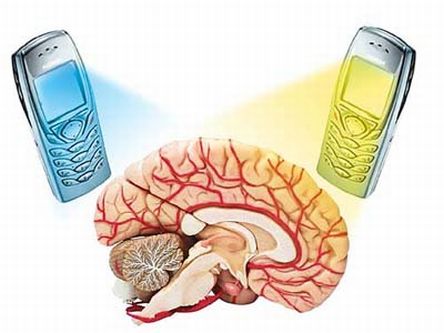
The governor got a late start on the bills because last month he threatened to veto all legislation until lawmakers approved the overdue state budget. The Legislature responded by holding the bills until they and the governor had agreed on a budget deal late last week.
The Legislature approved the spending plan on Friday and Schwarzenegger signed it on Tuesday, paving the way for the governor to act on hundreds of items.
The first bill, SB28 by Sen. Joe Simitian, D-Palo Alto, will make California one of a handful of states that bans text messaging while driving. Others include Louisiana, Minnesota, New Jersey, Connecticut and Washington.
"Banning electronic text messaging while driving will keep drivers' hands on the wheel and their eyes on the road, making our roadways a safer place for all Californians," Schwarzenegger said in a written statement.
But a Republican lawmaker argued the measure is yet another example of adding unnecessary legislation to the Vehicle Code when there's already sufficient rules on the books.
"There's already blanket law that says reckless driving is illegal and if you cause an accident while recklessly driving, it's a misdemeanor...When you start going down that path, where do you end?" said Assemblyman Chuck DeVore, R-Irvine.
The legislation follows California's ban on using a cell phone while driving unless motorists use a hands-free device. That law, also authored by Simitian, went into effect July 1.
"It is a reminder that we live in a changing world and the law has to change to reflect that fact," Simitian said.
The text-messaging ban will go into effect on Jan. 1. A violation of the law would result in a $20 fine for a first offense and $50 for each subsequent offense.
The Republican governor also signed AB498, which forbids private companies that have business operations in Sudan to bid on state contracts - a way to pressure the Sudanese government to halt the genocide in Darfur.
"California will not underwrite the horrors of murder and genocide in Sudan," Schwarzenegger said in a written statement.
Sarah Grundahl, domestic policy associate for Save Darfur Coalition based in Washington, D.C., applauded Schwarzenegger signing the bill into law.
"Economic pressure is one of the biggest tools that we have and California has stood up and made it clear that we don't help fund genocide," she said.
California already forbids the state's pension funds from investing in companies that have active business in Sudan and Iran.
The governor on Wednesday also signed two bills on charter schools. They are:
-- SB658 (Romero, D-Los Angeles) - Shifts the Year-Round School Grant Program funds, which total more than $90 million, to the Charter School Facility Grant Program beginning July 1, 2013.
-- AB2033 (Núñez, D-Los Angeles) - Lowers the interest rate for lease payments on approved charter school facility projects.
Schwarzenegger vetoed AB2115, authored by Assemblyman Gene Mullin, D-South San Francisco, which would have required charter schools to adopt conflict-of-interest policies for their governing boards similar to the ones used by local school boards.
Schwarzenegger argued in his veto message that AB2115 would create additional costs for charter schools and would run counter to the intent of charter schools, which is to be free from rules governing local school districts.
Original Article





